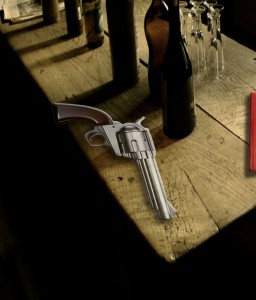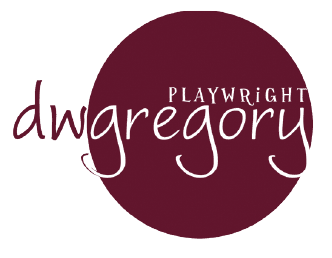Something happened last night. It got me so fired up I was ready to let fly with both barrels.

So you know it was big.
And that is why I had to step back and think about my choice of words. How ironic that the first thing to come to me was the metaphor of the gun.
I’ve been volunteering now for a couple weeks to help bring about a March on Washington for Gun Control. This is an effort by some D.C. theatre artists to call attention to the need for a more sensible gun policy in this country — one that could have prevented the carnage at Sandy Hook. So when an apparent coordinated effort by opponents of the march shut down our Facebook page for several hours last night, I was outraged.
I guess when you don’t have an argument, you resort to dirty tricks. And no question it is easier to shut down the argument you cannot refute than to actually refute it—and that is another irony, that such vocal proponents of the Second Amendment seem to forget that there is also a First Amendment.
But there I was, firing off emails (oh yes I know) invoking the metaphor of the gun.
Both barrels, loaded for bear. And it occurred to me how trapped we all are within a language and culture so besotted with weaponry.
There isn’t any question. The gun is central to the iconic image of America, the myth of Western justice dispensed by the soft-spoken marshall with his six-shooter, his steely reserve, his calm confidence in the rightness of his cause—oh my.
And it is so pervasive in American culture that it saturates our very thinking—the words we use to describe our conflicts, to describe the actions we might take to resolve them, are soaked in violence and blood. And this saturation is so complete that most of use never give any thought to the meaning of the words themselves.
I am not alone in this, struggling to find words that convey the power of my feelings without buying into the currency of violence. Try it yourself. Think about an injustice that so angers you—you’re moved to action. Can you talk about those feelings without resorting to the language of the gun?
So we bite the bullet while we fire off that email, telling our friends that we have the target in our cross-hairs, and surely these fools we are up against are an easy mark anyway, so let’s aim high, and if we have to, we will just go out in a blaze of glory.
This is such a part of our culture, so deeply imbedded in our language that we can hardly speak of ordinary events without invoking extraordinary horror.
We speak in these metaphors because they are a short-cut—a substitute for thinking, a touch-stone of experience that we all understand. Except we don’t really understand.
We don’t realize that the blaze of glory we speak of is a high speed bullet ripping through flesh and bone and scattering body parts of children around a schoolroom.
We don’t appreciate that both barrels of a shotgun wreak such devastation that grown men who’ve spent thirty years dealing with carnage will break down and cry when they come into that schoolroom.
The language of the gun is reflexive—automatic, like the pistols I abhor—and to root it out of our language completely would require a transformation of culture so profound that I cannot imagine it possible.
But it is essential if America is ever to separate itself from its history of violence. If our language is so blood-soaked, can we ever come to define ourselves without the frame of violence? Can we ever free ourselves from the underlying fear that drives so many of our fellow Americans to arms?
